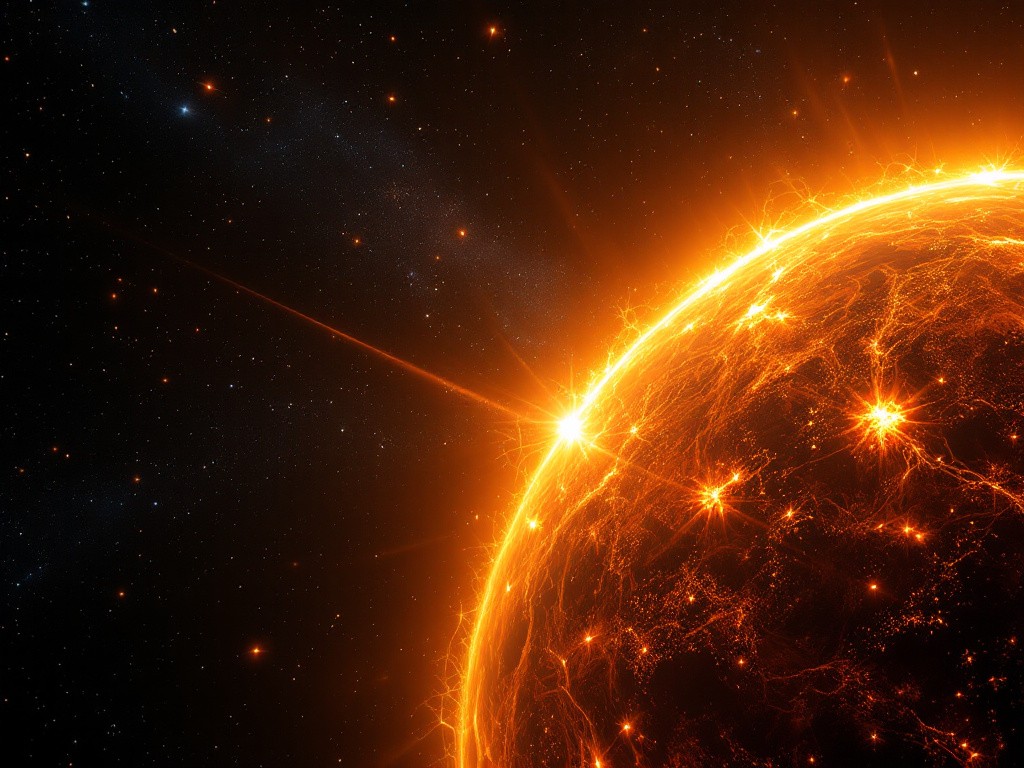Feeling Doubtful about Greenhouse Gas Effects
Introduction
Climate change has been at the forefront of concern around the world for quite a few years now. We've seen the steady increase in greenhouse gasses since industrialization began and have been able to measure the effect industry has had on the atmosphere in detail since 1970. As the decades have worn on and the world gets more technological with an increase in industrial activity. It is noticed that there has been an increase in average temperature in the last century of about a full degree. This paper asserts that greenhouse gasses are not the primary factor in global warming, but that the warming is from a shifting of the electromagnetic poles in conjunction with a prolonged increase in solar activity which has weakened the atmosphere's ability to repel solar winds and radiation.
A degree in temperature doesn't seem like it should be much to worry about as many skeptics have pointed out, the earth goes through cooling and heating cycles all the time. It is considered normal based on the history we know of the earth. What is remarkable about this time period however, is that the earth warmed up a degree in about a hundred years. Normal cycles of heating have shown that the cycles have taken up to a thousand years to heat up, where we've seen the change occur within the span of a human lifetime. The speed of the increase is the disconcerting factor in this heating cycle.
Atmosphere
The earths atmosphere is made primarily of nitrogen and oxygen. Below is a breakdown of the gasses that can be found in our atmosphere followed by the same gas categories from 1970:
Today's Content
- Nitrogen (N2): 78.08%
- Oxygen (O2): 20.95%
- Argon (Ar): 0.93%
- Carbon dioxide (CO2): 0.04% (increasing due to human activities)
- Methane (CH4): 0.0002% (increasing due to human activities)
1970s Content
- Nitrogen (N2): 78.08% (no significant change)
- Oxygen (O2): 20.95% (no significant change)
- Argon (Ar): 0.93% (no significant change)
- Carbon dioxide (CO2): 0.032% (lower than current levels)
- Methane (CH4): 0.0001% (lower than current levels)
You'll notice that the Oxygen, Argon and Nitrogen are largely the same but take a look at the two gasses that are believed to be causing global warming and look at the percentage of atmosphere of each. You'll notice that both of these numbers are negligible in comparison to the other gasses that are in the atmosphere. 0.004% Carbon and 0.0001% Methane. Yes, these two gasses have risen slightly since 1970 but the amount is so small it leads one to question, 'are we attributing the correct cause to climate change?'
Alternatively, if we take a look at our neighboring planets that have high carbon content we can get a rough gauge as to what a high carbon content will have for an effect on the temperature of the environment. When we look at Venus, we can see that Venus' atmosphere is made primarily of carbon dioxide with a concentration of about 96.5% and the average temperature of Venus is 462°C. This is an amazingly hot planet which seems to confirm the fears of a carbon rich atmosphere but, when you look at another planet such as Mars which has a concentration of carbon around 95.3%, it's average temperature is a balmy -67°C.
Both atmosphere's are made primarily of Carbon. So, when looking at our neighboring planets, one has to wonder how much the concentration of carbon actually affects the temperature as both concentrations are about the same yet the variances in temperature are extreme.
The largest factor in environment temperature is how thick the atmosphere is. Venus has an extremely thick atmosphere and mars has an extremely thin atmosphere. The atmospheric thickness has many variables including the density of the planet, the electromagnetic field around earth, solar winds, the rate that vapor escapes the atmosphere, are all aspects that determine the thickness of the atmosphere.
When you look at earth right now our magnetic poles are getting ready to reverse themselves. They are about 5% weaker than they were back in 1970 and this has caused some extreme weather patterns to create some havoc. The Atlantic current is slowing down and could be stopped as early as a year from now in which case we could see a cooling of the north putting France and England into a perma-frost zone eventually and flipping the rainy season and dry season in the Amazon.
Coincidentally, the atmosphere is 3 to 4% thinner than it was back in 1970 and being that the electromagnetic field is one of the determinants for the atmospheric thickness it stands to reason that the thinner atmosphere is at least partially due to the weakened magnetic field.
Conclusion
When looking at the past when we've had a global heating cycle take hold that occurred at the same time as a pole shift we find the data to be inconsistent where not all of the pole shifts corresponded with a heating of the earth. When we factor in an increase in sunspots, solar winds, and solar radiation from an increasingly active sun there is a positive correlation of the heating periods during the magnetic pole switch occurring at the same time as the increased sun activity had occurred.
There were indeed magnetic pole switches which occurred where there was no increase in temperature but those periods did not have an increase in the suns activity at the same time. So when incorporating the increased sun activity one can see a positive correlation in all of the periods where there was an increase in global temperature.
It is therefore reasonable to assume that when the electromagnetic poles switch positions, that the atmosphere becomes thinner as a result of that switch and when that thinner atmosphere is exposed to an increase in solar activity it causes a heating of the earth. The increased sun activity causes solar winds to strip away more atmosphere and the solar radiation is able to beat down on the earth harder making it warmer. So, in essence the increased sun activity at the same time as the magnetic pole switch is the culprit for the temperature changes that we have seen.
This heating assertion is concluded because the negligible amounts of carbon and methane that are in the earth's atmosphere, dull in comparison to our neighboring planets who both have 95% carbon dioxide atmospheres but strangely have a variance in temperature range from 460 C to -67 C respectively, thus showing earths .004% of Carbon and 0.0001 % of methane are not the culprits for the heating phenomenon because the thickness of the atmosphere is what captures the heat.



Comments
Post a Comment